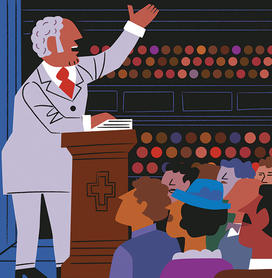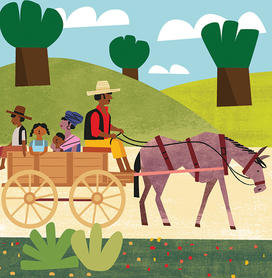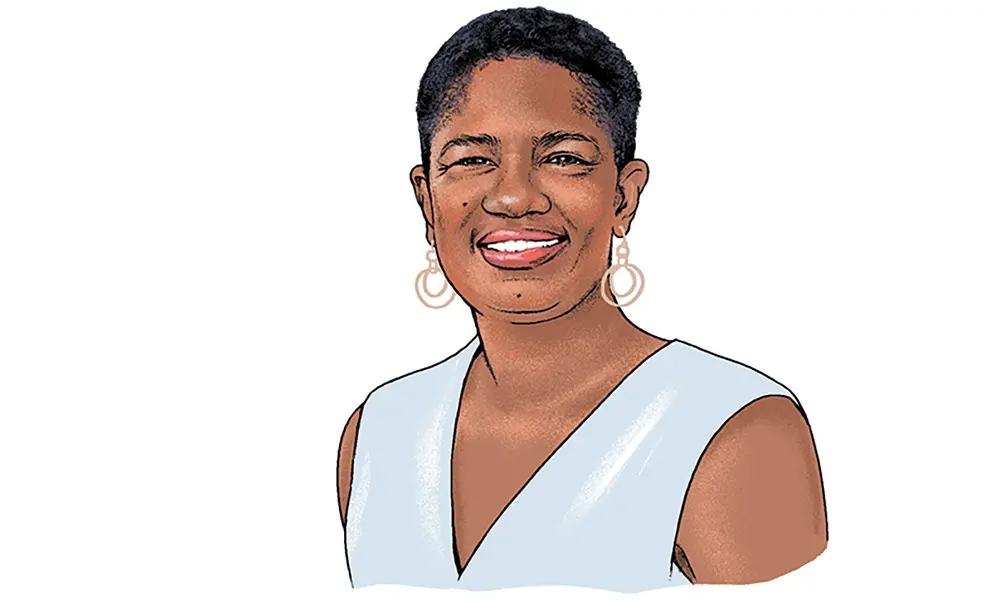Nicole Myers Turner Examines the Power of Religion
Nicole Myers Turner’s interest in the brazilian martial art of capoeira while in high school set her on a journey of exploration that led to the study of religion.
“I was fascinated by the fact that capoeira was a tradition that was carried from Africa to the Americas and continued to be practiced now, in the 21st century,” says Turner, who began studying how African culture is retained through language and dance in high school and continued as an undergraduate at Haverford College.
Her research quickly led her to robust archives on the role of religion as not only a vehicle of preservation but also a community builder. This resonated with Turner, as she had been a member of a church committee in her predominantly Black neighborhood of East New York, Brooklyn, that was politically active around voter registration, housing development, and other civil issues.
“I was really curious about how religious spaces and religious ideas could be used to bring about social change and mobilize people to act,” she explains. “Religion is such a force.”
Turner went on to earn her Ph.D. in history from the University of Pennsylvania and her M.Div. from Union Theological Seminary. Her current research focuses on African American religious, political, and gender history in the 19th century.
Quick Facts
Title
Assistant Professor of Religion
Time at Princeton
2 years
Recent Class
Mapping American Religion
Turner’s Research
A Sampling
Church as Agent of Change

Since high school, Turner has been interested in the ways in which Black churches and theological schools evolved into homes for political activism and social organization. Her first book, Soul Liberty (UNC Press, 2020), traces this evolution in post-emancipation Virginia, where, she notes, “We can’t take for granted that African American people were able to be political agents. No Black people had the right to vote or participate in formal political spaces.” Her book also examines gender dynamics in Black churches at the time, showing how these dynamics were shaped by slavery and its influence on the ways families, labor, and even religious spaces were organized.
Tracing Black Religion

While researching her first book, Turner frequently used mapping techniques to better understand the political forces at work in post-1865 Virginia. In collaboration with Virginia Commonwealth University’s ALT Lab and Cabell Library’s digital scholarship staff, she turned her diagrams into Mapping Black Religion, a digital history project that explores Black religious life and politics during the 19th century. “I wanted to tell a more focused story about the intersection of Black religion and politics through the Virginia State Baptist Convention” — which was created to support the formation of independent Black churches. She also hopes to explore “how mapping is a multivalent practice with its own power and politics.”
Moving Through the Americas

Since her first book zeroed in on the importance and specificity of place in the Black religious experience, Turner is now studying how forced migration and fugitivity shaped the beginnings of Black religion in the Americas. “So much of the experience of enslaved Africans and religious community is shaped by movement, whether it’s the forced migration of the transatlantic slave trade or domestic slave trade, or the movement of self-emancipating folks,” she says. “I’m interested in how people circulate and shape the formation of Black religion in various places.”












No responses yet